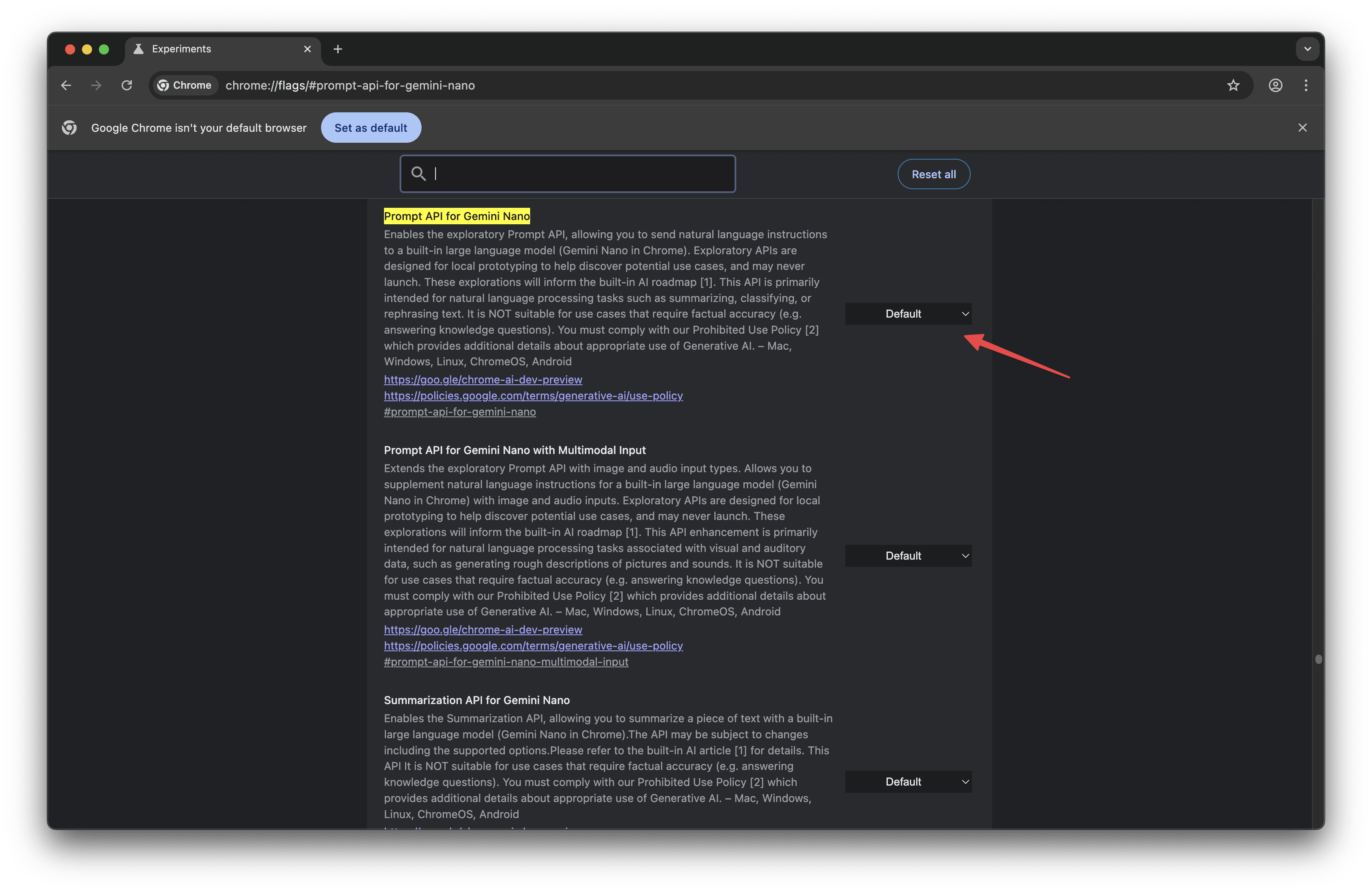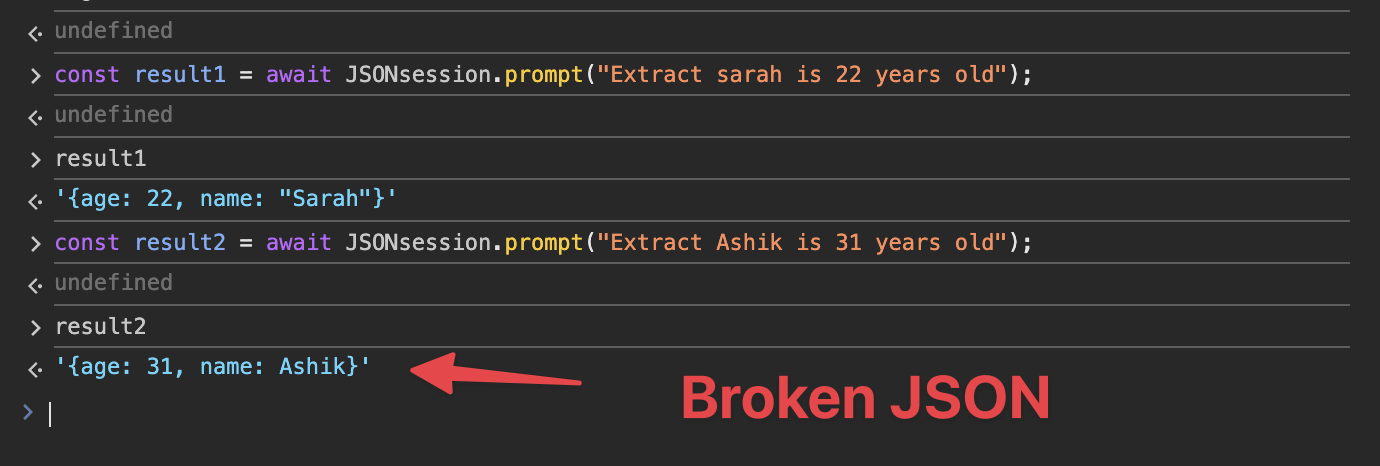Gemini Nano in Chrome 138+
Gemini Nano will be getting shipped with Google Chrome starting from version 138.
This in browser LLM is good for the use cases in which you don’t powerful intelligence like:
- Summarizing
- Classification
- Rephrasing text
And it is NOT useful to get factual information (getting answer for a question)
How to enable it?
By default, it may not be enabled so you’ll need to enable it feature flag chrome://flags/#prompt-api-for-gemini-nano
You may need to restart the browser post updating it.
 And once that is enabled you’ll to download the model which you can do by running the following in the console.
And once that is enabled you’ll to download the model which you can do by running the following in the console.
const session = await LanguageModel.create({
monitor(m) {
m.addEventListener("downloadprogress", (e) => {
console.log(`Downloaded ${e.loaded * 100}%`);
});
}
})
- The model comes with
6144context window – you can get this info by runningsession.inputQuota - It is likely 4-6B model at a 4-8bit quantization
Usage
You can interact with the model using The Prompt API
Check if model is available
await LanguageModel.availability()
| Response | Description |
|---|---|
| “unavailable” | The implementation does not support the requested options, or does not support prompting a language model at all. |
| “downloadable” | The implementation supports the requested options, but it will have to download something before it can create a session using those options. |
| “downloading” | The implementation supports the requested options, but will need to finish an ongoing download operation before it can create a session using those options. |
| “available” | The implementation supports the requested options without requiring any new downloads. |
Configuring model parameters
The params() function in LanguageModel will let us know the available model’s parameters.
| Parameter | Default Value | Maximum Value | Notes |
|---|---|---|---|
| defaultTopK | 3 | 8 | |
| defaultTemperature | 1.0 | 2.0 | Temperature value must be between 0.0 and 2.0 |
| maxTemperature | 2.0 | ||
| maxTopK | 8 |
await LanguageModel.params();
// {defaultTopK: 3, maxTopK: 8, defaultTemperature: 1, maxTemperature: 2}
Function Calling / JSON Output
const JSONschema = `<schema>
{
"description": "Correctly extracted \`UserDetail\` with all the required parameters with correct types",
"name": "UserDetail",
"parameters": {
"properties": {
"age": {
"title": "Age",
"type": "integer"
},
"name": {
"title": "Name",
"type": "string"
}
},
"required": [
"age",
"name"
],
"type": "object"
}
}
</schema>`
const JSONsession = await LanguageModel.create({
initialPrompts: [
{ role: 'system', content: 'You are a helpful LLM that only responds in valid JSON fitting a schema: ' + JSONschema },
{ role: 'user', content: "Extract Jason is 35 years old" },
{ role: 'assistant', content: '{age: 35, name: Jason}'},
]
});
const result1 = await JSONsession.prompt("Extract Sarah is 22 years old");
console.log(result1);
// {age: 22, name: Sarah}
Wrappers like GitHub - kstonekuan/simple-chromium-ai make it easy to work with Chrome’s Prompt API.
You can read about creating session, multimodal capabilities, etc in the The Prompt API | AI on Chrome blog post.
What doesn’t work as expected (yet)
- Required fields are not strictly followed.

- Sessions are stateful by default.
Credits
Gemini Nano in Chrome 138: notes for AI Engineers
References
Happy in-browser inference!

